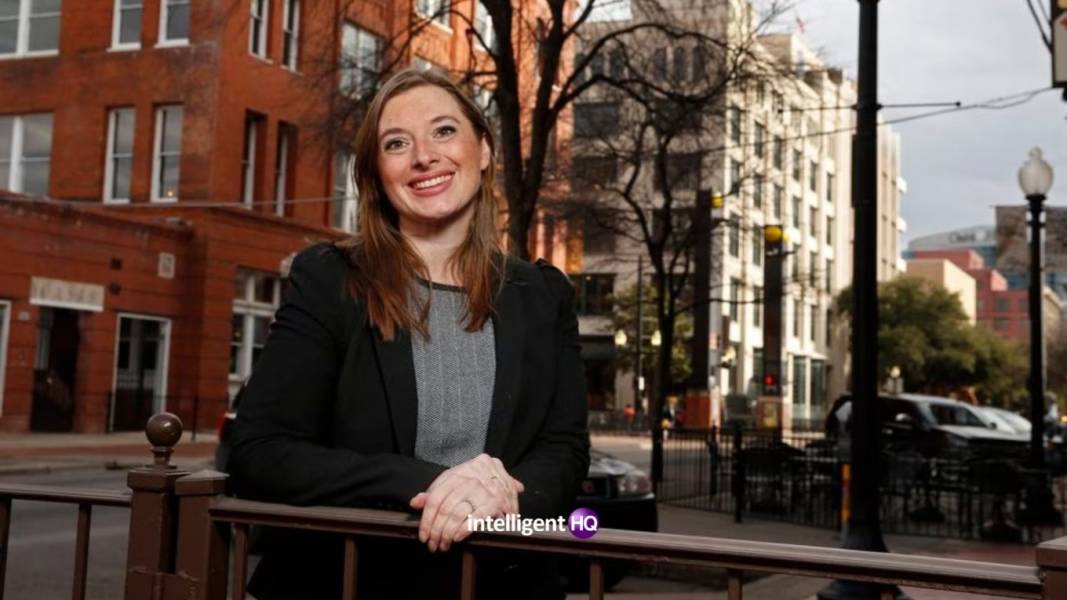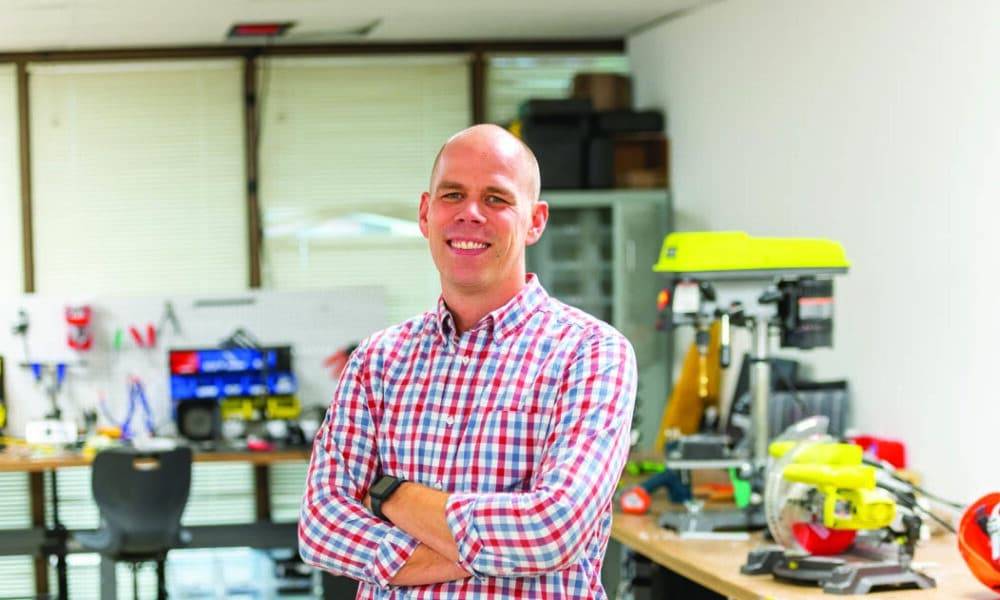• Jennifer Sanders, the Executive Director of the North Texas Innovation Alliance, and Brandon Branham, Chief Technology Officer (CTO) and Assistant City Manager of Peachtree Corners, were the guests in the latest episode of Dinis Guarda YouTube Podcast series to discuss the various use cases of smart city initiatives.
• Peachtree Corners, one of the United States’ first 5G smart cities powered by real-world connected infrastructure, partnered with the North Texas Innovation Alliance (NTXIA), regional consortium of nearly 30 municipalities, agencies, corporations and academic institutions across North Texas, to widen the scope of smart cities across the country through public-private partnerships.
• The podcast is powered by openbusinesscouncil, fashionabc, and citiesabc.
The concept of ‘Smart Cities’ is transforming urban living with the use of digital technologies to create an interconnected and efficient city. These cities are designed to leverage data and technology to improve the lives of their residents.
With the rapid advancement of technology, cities can now use sensors, artificial intelligence, and data analytics to monitor and analyse various aspects of city life, such as traffic patterns, air quality, and energy usage. This information is used to make informed decisions, optimize resource usage, and provide a better quality of life for residents.
North Texas Innovation Alliance and Peachtree Corners are working together to develop a supportive and collaborative network to integrate smart city efforts across the region. Jennifer highlighted many use cases that were introduced across various cities in the United States.
For instance, smart traffic systems can use real-time data to manage traffic flow, reducing congestion and air pollution. Similarly, smart energy grids can monitor and balance energy usage to reduce waste and costs. Additionally, smart public services like garbage collection can be optimised to reduce costs and improve efficiency.
More interviews
Creating cohesive, aligned, human-centred smart cities
A smart city, at its core, is one that uses technology and data to improve the efficiency of its services. The present-day smart city initiatives are being designed to be inclusive and accessible to everyone, regardless of age, ability, or background. This can include everything from designing accessible public spaces to ensuring that digital services are available to everyone.
“The complexity changes from state to state, especially when you think about public infrastructure and policies. We align our systems and processes to the specific demands of the cities and use technology to identify and address the pain points and to foster a community level of involvement”, Brandon told Dinis.
Citizen engagement is essential because smart cities are primarily designed for the people who live and work in them. As such, citizens are encouraged to get involved in the planning, design, and implementation of smart city initiatives, and their feedback are the key element in the success of these initiatives. This can be done through community meetings, surveys, and other forms of outreach.
“I think the impact of these smart city initiatives and engagements also nurtures community trust. Technology does help us fill gaps in operations, thus making it a smoother and simpler flow”, said Jennifer.

Fostering partnerships and collaboration across multiple sectors and stakeholders is essential for creating cohesive, aligned, human-centred smart cities. This includes city government, businesses, community organizations, and citizens themselves. By working together, these groups can ensure that smart city initiatives are aligned and focused on the needs of the community. Jennifer also told Dinis:
“We take a holistic approach to really set up a smart city, creating an intersection of collaborations and technology to create an ecosystem that utilises available resources to change the entire personality and flow of the neighbourhood and connect them to one another.”
Layering Smart City benefits with protection of personal data
Data is the backbone of smart city initiatives, and it should be used to inform decisions at every level. This includes everything from traffic management to public safety to energy efficiency. It provides the foundation for understanding the needs and behaviour of citizens.
By collecting data from various sources, including sensors, IoT devices, and citizen feedback, cities gain a better understanding of traffic patterns, energy usage, public safety, and more. This information is, then, used to optimize services and infrastructure, reducing waste and improving the overall quality of life for citizens. Explaining the process of development of initiatives at Peachtree Corner’s Curiosity Lab, Brandon explained it to Dinis:
“We took some of the infrastructure and embedded it with technology in a closed lab environment, where you can control all the other parameters. Based on the results and data collected, we improvise the existing legacy systems and then introduce these new and improved processes and workflows to private companies and cities to scale.”

Smart city initiatives rely on large amounts of data, much of which is sensitive and confidential. As such, it is essential that cities take steps to protect this data from cyber threats and other potential security breaches.
It is also critical that data is collected and used in a way that protects privacy. Data should be collected and analysed in a transparent manner, with citizens having the right to access their data and understand how it is being used.
“You can’t see most of the smart city projects with the naked eye, but you do know that there are sensors around. We do hope that people realise that their quality of life has gotten better. In this understanding, however, the technology doesn’t have to be scary because you need to know how to design correctly and ensure the security and safety of the personal data of the residents and workers, and make sure that the community uses those strategies as well”, Jennifer said.
About citiesabc.com
https://www.citiesabc.com/
https://twitter.com/citiesabc__
About openbusinesscouncil.org
https://www.openbusinesscouncil.org/
4IR: AI Blockchain Fintech IoT Reinventing a Nation by Dinis Guarda and Rais Hussin (4irbook.com)
Dinis Guarda citiesabc openbusinesscouncil Series is also available as podcast on:
Apple Podcasts: https://podcasts.apple.com/us/podcast/dinis-guarda-citiesabc-openbusinesscouncil-series/id1510330391
On Spotify: https://open.spotify.com/show/1vA8KaDaRpJ0mAfpNbfTSF?si=H_WngL4RSOyu1W7VAmM41w&dl_branch=1
Google Podcasts: https://podcasts.google.com/feed/aHR0cHM6Ly9mZWVkcy5idXp6c3Byb3V0LmNvbS8xMDMyMzg4LnJzcw==
Amazon Music: https://music.amazon.com/podcasts/953a5156-823c-4e86-baeb-4fda1128e44c/DINIS-GUARDA-CITIESABC-OPENBUSINESSCOUNCIL-SERIES

Pallavi Singal is the Vice President of Content at ztudium, where she leads innovative content strategies and oversees the development of high-impact editorial initiatives. With a strong background in digital media and a passion for storytelling, Pallavi plays a pivotal role in scaling the content operations for ztudium’s platforms, including Businessabc, Citiesabc, and IntelligentHQ, Wisdomia.ai, MStores, and many others. Her expertise spans content creation, SEO, and digital marketing, driving engagement and growth across multiple channels. Pallavi’s work is characterised by a keen insight into emerging trends in business, technologies like AI, blockchain, metaverse and others, and society, making her a trusted voice in the industry.












